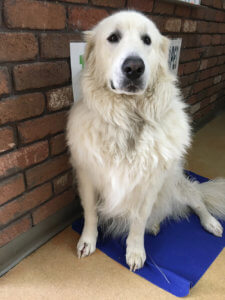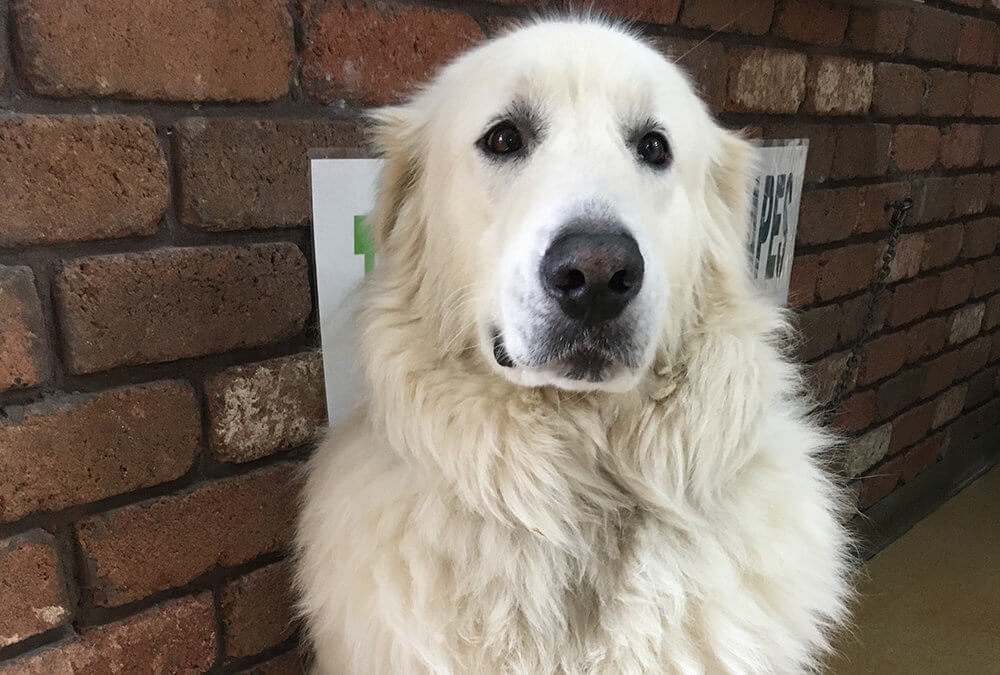 It is hard to imagine that something this small has the potential to cause so many issues for our furry friends! Grass seeds are a big problem for Australian pets, particularly during the spring and summer months.
It is hard to imagine that something this small has the potential to cause so many issues for our furry friends! Grass seeds are a big problem for Australian pets, particularly during the spring and summer months.
Otis, the 5-year-old Maremma X. Thanks to his owner’s swift action, these grass seeds were removed promptly under mild sedation, with no further complications. Dr. Susi flushed the area and trimmed the hair around his paws to help minimise future risk.
Otis was sent home with a course of pain relief and anti-inflammatories, an Elizabethan collar (to prevent licking and subsequent infection) and a follow up appointment scheduled for 5 days’ time.
 It’s not uncommon for grass seeds to become caught in your pet’s fur, embedding themselves in the skin very quickly. If left untreated, they can cause a whole heap of problems – ranging from mild swelling to life-threatening illness. Grass seeds are great carriers of bacteria and once they penetrate the skin, infection is almost inevitable. If left untreated, the seed can travel around the body, causing severe damage to internal organs. Surgical removal and often prolonged use of antibiotic therapy is typically the only means of treatment.
It’s not uncommon for grass seeds to become caught in your pet’s fur, embedding themselves in the skin very quickly. If left untreated, they can cause a whole heap of problems – ranging from mild swelling to life-threatening illness. Grass seeds are great carriers of bacteria and once they penetrate the skin, infection is almost inevitable. If left untreated, the seed can travel around the body, causing severe damage to internal organs. Surgical removal and often prolonged use of antibiotic therapy is typically the only means of treatment.
While there’s not a whole heap that we can do as pet owners to prevent the disastrous effects of grass seeds, there are a few ways we can minimise the risk for our furry friends:
- Keep your pet away from long, dry grassy areas
- Keep your lawn mown and keep the area as tidy as possible, sweeping away any plant material or offending seeds.
- Groom your pet daily to help identify any possible seeds or lumps. Carefully check their eyes, ears, nose, armpits, groin and between their toes – these are common hiding places for grass seeds.
- Some pet owners choose to have their pooch’s coat trimmed nice and short during high-risk seasons.
- Barrier type accessories are available in the form of vests (that cover the chest and abdomen) and booties, that are worn while out for walks in high-risk areas.
- Always be on the lookout for symptoms, particularly during the spring and summer months
-
- Shaking the head
- Frequently sneezing
- Excessive licking of the paws
- Lumps
- Lethargic
If you suspect your pet has a grass seed, always seek immediate veterinary advice.

